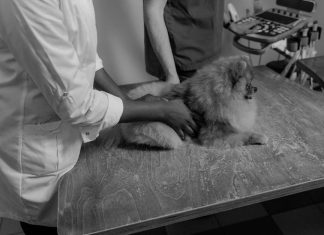Welcoming a new puppy into your home is an exciting and joyful experience, filled with playful antics and the start of a lifelong bond. As you embark on this journey, ensuring your furry friend’s health and well-being becomes a top priority. One of the key areas to focus on is your puppy’s digestive health, as a robust digestive system is essential for their overall growth and happiness. In this guide, we’ll explore essential tips and practices to prevent digestive issues in your puppy, helping you nurture a healthy and vibrant companion. With a blend of expert advice and practical suggestions, you’ll be well-equipped to support your puppy’s digestive health, allowing them to thrive and enjoy a fulfilling life by your side.
Understanding Your Puppys Digestive System
To keep your puppy’s digestive system in top shape, it’s essential to understand how it functions and what it needs. A puppy’s digestive system is a delicate network that requires balanced nutrition, adequate hydration, and a routine feeding schedule. Here are some tips to help prevent digestive issues:
- Feed high-quality puppy food: Ensure that the food you choose is specifically formulated for puppies, offering the right balance of proteins, fats, and carbohydrates.
- Establish a consistent feeding schedule: Puppies thrive on routine. Feeding them at the same times each day helps regulate their digestive system.
- Introduce new foods gradually: If you need to change your puppy’s diet, do so slowly over a week to prevent gastrointestinal upset.
- Monitor portion sizes: Overfeeding can lead to obesity and digestive issues. Follow the recommended serving sizes on the food packaging.
- Keep fresh water available: Hydration is crucial for digestion. Ensure your puppy always has access to clean water.
By adhering to these tips, you’ll help create a healthy foundation for your puppy’s digestive health, allowing them to grow and thrive happily. Remember, if you notice any persistent digestive problems, consult your veterinarian for personalized advice.

Choosing the Right Diet for Optimal Puppy Health
When it comes to nurturing your puppy’s health, selecting the right diet is crucial to ensuring they develop a robust digestive system. Puppies require a balanced diet rich in nutrients to support their rapid growth and active lifestyle. Look for foods that are specifically formulated for puppies, as these are tailored to meet their unique dietary needs. High-quality protein is essential for muscle development, while calcium and phosphorus support strong bones and teeth. Equally important are omega-3 fatty acids for brain development and a shiny coat.
As you navigate the pet food aisle, consider the following guidelines to prevent digestive issues:
- Choose a diet with easily digestible ingredients to minimize gastrointestinal distress.
- Avoid foods with excessive fillers and artificial additives.
- Introduce new foods gradually to allow your puppy’s digestive system to adjust.
- Ensure that your puppy has access to fresh, clean water at all times.
Remember, every puppy is unique, and what works for one may not suit another. Consulting with a veterinarian can provide personalized recommendations based on your puppy’s specific health needs and breed characteristics.

Daily Habits to Support Your Puppys Digestion
Ensuring your puppy’s digestive health starts with establishing some simple daily habits. Begin by feeding your furry friend a consistent, high-quality diet. Puppies thrive on routine, so sticking to a regular feeding schedule helps maintain their digestive rhythm. Avoid sudden changes in diet, as this can lead to stomach upsets. Always choose a food that is appropriate for your puppy’s age, breed, and size, and consult with your veterinarian to make the best choice.
In addition to a stable diet, make sure your puppy has access to fresh water at all times. Hydration is key to preventing constipation and supporting overall digestion. Incorporate gentle exercise into their daily routine to keep their digestive system active and healthy. Short walks or play sessions in the yard can work wonders. Also, pay attention to their potty routine, and provide plenty of opportunities for them to relieve themselves regularly. This not only aids digestion but also helps you monitor their health through the consistency and frequency of their stools.
- Feed a consistent, high-quality diet
- Provide fresh water throughout the day
- Incorporate gentle exercise
- Monitor their potty routine

Recognizing Early Signs of Digestive Trouble in Puppies
Understanding the early signs of digestive trouble in puppies is crucial for ensuring their well-being and happiness. Puppies, with their boundless energy and curious nature, often explore the world through their mouths, which can lead to digestive upsets. Vigilance is key. Look for subtle changes in their behavior or routine that might indicate discomfort. Signs to watch for include:
- Frequent vomiting or diarrhea: Occasional episodes can be normal, but frequent occurrences are a red flag.
- Loss of appetite: A sudden disinterest in food can signal digestive discomfort.
- Lethargy: Puppies are typically active; a lack of energy might suggest an underlying issue.
- Excessive gas or bloating: These can indicate dietary intolerances or more serious conditions.
It’s important to consult your veterinarian if you notice any of these signs, as early intervention can prevent more severe health issues. Regular check-ups and a balanced diet tailored to your puppy’s needs can significantly reduce the risk of digestive troubles.
















